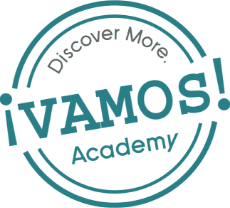If you’re planning a journey to the land of tango and football fans, grasping the cultural do’s and don’ts in Argentina is more than a simple courtesy—it’s the gateway to the heart of its people. In a place where passion runs deep, how can foreign visitors foster connections that transcend the language barrier? Is it possible that your preconceptions about how to behave in Argentina could be the very faux pas that sidelines you from the real experience? This guidebook unveils the subtleties of Argentina cultural etiquette, ensuring your visit brims with respectful behavior and genuine understanding. Navigate the rich tapestry of cultural sensitivity in Argentina with finesse, and watch as the nation’s vibrant spirit unfolds before you.
If you’re wondering what to do upon arriving in Argentina, we’re here to help. Not with travel information, though–with information on Argentine customs and culture, which can be just as important. Here are the things to do and things to avoid when visiting Argentina.
| Do’s | Don’ts |
|---|---|
| Embrace late-night culture | Avoid sensitive political topics |
| Learn basic Spanish phrases | No random street money exchange |
| Indulge in local cuisine | Talk about Malvinas |
| Use public transport | Talk about Chile |
| Respect Mate ritual | Careful mixing Hispanic with Latins |
Understanding the Porteño Persona: Communication Styles in Buenos Aires
Diving into the bustling streets of Buenos Aires reveals more than just a city vibrant in culture—it’s a lesson in the argentina social norms that govern its communication styles. Here, the art of conversation is just as colorful and intricate as the renowned street murals that adorn the neighborhoods. Local parlance is peppered with argentine slang that reflects a society unafraid to speak its mind, giving travelers an authentic glimpse into the heart of Argentine identity.
Deciphering Local Slang and Directness
To truly grasp understanding argentinian communication, one must come to terms with the directness and local jargon that are hallmarks of porteño speech. Expressions like “che, boludo” which can be misconstrued as offensive, are actually indications of closeness and affection in this context. The meaning behind these words is emblematic of the unfettered candidness you’ll encounter amidst your interactions.

Interpreting Humor and Sociability
Infused with a sense of humor that is as sharp as it is endearing, Argentine banter will challenge those unaccustomed to its unique flavor. Porteños exercise a blend of sarcasm and wit, often including self-deprecating remarks and playful teasing. This style of communication is not meant to offend but to bond—illustrating a facet of the argentina customs and traditions where humor and friendship go hand in hand.
| Argentine Slang | English Translation | When It’s Used |
|---|---|---|
| Che | Hey/Buddy | To grab attention or refer to a friend |
| Boludo/a | Fool/Idiot (friendly) | Among friends as a playful jab |
| Quilombo | Mess/Chaos | Describing a complicated situation |
| Birra | Beer | When ordering a drink casually |
Read more about all of the Argentine Gestures:
Exploring Nightlife and Social Norms: When to Show Up
Delving into the night is an integral part of Argentine culture, revealing a nation that embraces the night with zeal and warmth. To navigate this evening landscape successfully, visitors must understand the nuances of Argentine timekeeping and social norms. Adhering to local argentinian etiquette guidelines not only enriches the cultural experience but also fosters genuine connections with the festive locals.
Timing Your Arrival at Social Gatherings
When planning to attend gatherings in Argentina, the concept of time flexes differently compared to many other cultures. It is perfectly acceptable, and even expected, to arrive somewhat later than the time stated on the invitation. Here’s a quick guide on what ‘fashionably late’ typically means:
- Dinner parties: Arrive 20 to 30 minutes after the scheduled time.
- Casual meet-ups: Being 30 to 40 minutes late is often the norm.
- Official events: Punctuality is respected, aim to be on time.
Experiencing Argentina’s Vibrant Late-Night Culture
The pulsating nightlife in Argentina has a certain allure that can be enchanting for night owls and partygoers. Buenos Aires, in particular, is renowned for its late-night festivities and vibrant social scene. To fully immerse oneself in this electric atmosphere, understanding local customs is key.
Whether it’s a tango hall or a modern club, timing is everything. Expect most venues to peak well past midnight. Here’s a snapshot of what to expect:
| Activity | Typical Start Time | Peak Time |
|---|---|---|
| Pre-night drinks (previa) | 10 PM – 11 PM | 11 PM – Midnight |
| Bars | Midnight – 1 AM | 1 AM – 3 AM |
| Clubs/Discos | 1 AM – 2 AM | 3 AM – Close |
For visitors looking to dive into the local scene, aligning with this rhythm is part of mastering social etiquette in Argentina. Patience and willingness to adapt can turn a simple night out into an unforgettable adventure in the heart of Argentina’s cultural splendor.
Strolling Through La Boca: Safety Tips and Planning
The picturesque district of La Boca is a must-see area in Buenos Aires, rich in art and history. Known for its vibrant streets, particularly the famous Caminito, it attracts numerous visitors annually. To ensure a delightful and safe visit, bear in mind several safety tips for Argentina to navigate this enchanting neighborhood.

Navigating Caminito and Environs During Daylight
To fully enjoy the kaleidoscope of artworks, street performers, and artisanal vendors that characterize La Boca, remember to schedule your explorations during daylight hours. While La Boca safety during the day generally allows for peaceful strolls and leisurely browsing, the area is not recommended for tourists after dusk. By prioritizing a daytime visit, you can immerse yourself in the district’s cultural offerings while minimizing potential risks.
Choosing Safe Transportation Options in Buenos Aires
Efficient and reliable transport in Buenos Aires is plentiful, providing safe options for navigating around the city and accessing La Boca’s rich tapestry of street life. To ensure a secure travel experiences while exploring Buenos Aires safely, consider the following transportation methods:
| Transport Type | Benefits | Safety Tips |
|---|---|---|
| Hop-on, Hop-off Bus | Offers guided commentary and the flexibility to explore major attractions at your leisure. | Remain vigilant of your belongings and stay on the recommended routes. |
| Trusted Taxi Services | Convenient and direct, taxis can take you precisely where you need to go. | Use recognized taxi companies or apps to book rides rather than hailing on the street. |
| Public Transportation (Metro/Bus) | Cost-effective way to traverse the city and experience local life. | Maintain awareness of your surroundings and keep valuables securely stored. |
| Private Car Services | Provides a personal and often luxurious experience. | Pre-arrange trips with reputable car service companies for optimal safety. |
By adhering to these recommendations, you can confidently navigate Buenos Aires’ myriad of sounds and sights without compromising your safety or enjoyment.
Cultural Do’s and Don’ts in Argentina
When traveling to Argentina, familiarizing oneself with the cultural customs in Argentina can greatly enhance your experience. Some actions considered cultural faux pas in Argentina may seem innocuous to the uninformed traveler. Here’s an essential guide to help you avoid these pitfalls and follow Argentina cultural guidelines.
Addressing the United States: Avoid referring to the United States as “America” when conversing with Argentines. This is a common cultural faux pas in Argentina, as locals consider themselves Americans too.
Money Exchange: Be cautious and aware of multiple exchange rates when handling money. It’s advisable to research current rates and find safe and official means to exchange currency.
Dress Code: Dressing modestly and comfortably is in line with cultural customs in Argentina. Extravagant clothes and flashy accessories are uncommon in most settings.
Meal Time: Meals are an event to be enjoyed without rush, reflecting the leisurely pace of traditions in Argentina. Take your time to savor the flavors and participate in the convivial atmosphere.
Social Punctuality: For social gatherings, being excessively punctual is not the norm and can be surprising to hosts who may not be ready to receive guests early.
Extra Do’s and Don’ts
| Do’s in Argentina | Don’ts in Argentina |
|---|---|
| Use proper titles and surnames when addressing someone. | Don’t interrupt someone who is speaking; it’s considered rude. |
| Show enthusiasm when offered mate, a traditional infused drink. | Avoid discussing sensitive political or historical topics without invitation. |
| Accept social invitations to experience authentic cultural customs in Argentina. | Don’t refuse food or drink without a valid reason as it can offend your host. |
| Learn a few basic phrases in Spanish; effort is appreciated. | Do not compare Argentina negatively to other countries; express admiration. |
By keeping these guidelines in mind, you’ll be better positioned to navigate the rich tapestry of traditions in Argentina, making your interaction with locals more enjoyable and respectful.
The Art of Argentine Dining: Savoring Meals and Respecting Rituals

Embracing local argentinian customs and traditions is key to unlocking the full sensory pleasure of savoring argentine cuisine. With its unique blend of flavors and dining practices, Argentina offers a panorama of culinary delights paired with specific protocols. To savor meals authentically requires not only a taste for the food but also an understanding and respect for the associated etiquette.
The Importance of Sobremesa
One of the cornerstones of Argentine dining is the sobremesa, which embodies the spirit of togetherness and relaxation after enjoying a meal. This tradition is a testament to the value placed on social connections and leisurely enjoyment of one’s company, a practice deeply ingrained in Argentina. Understanding this staple of argentine dining etiquette is essential for anyone looking to deeply connect with local culture.
Understanding Service Etiquette in Restaurants
When dining in Argentine establishments, patience is much more than a virtue—it is an expectation and a respect for the pace of local life. Here, to rush is to miss the point; the essence of Argentine experiences lies in the unwinding of time. As such, familiarizing oneself with argentina etiquette tips will lead to a richer and more rewarding dining encounter. Servers embody this calm tempo, presenting the bill only when solicited, inviting diners to linger and bask in the post-meal ambiance.
| Dining Element | Customary Practice | Etiquette Tip |
|---|---|---|
| Service Pace | Unhurried, with checks provided upon request | Exercise patience and enjoy the relaxed atmosphere |
| Sobremesa | Lengthy post-meal conversation over drinks | Engage in congenial dialogue and savor the moment |
| Meal Time | Dinner often starts late and lasts for hours | Plan for a leisurely evening and indulge in the extended dining experience |
| Billing | Provided upon request, not automatically | Signal the server discreetly when ready to pay |
Food and Manners
Do not drink alcohol in public places (you will see younger people do this, but they’re usually seen as uneducated), or on public transportation. Technically, drinking in public areas in the City of Buenos Aires is illegal, but police rarely enforce that law.
You’re not a party popper if you’re late. In fact, it might be weird if you’re early or, even worse, on time. Most people arrive from twenty to forty minutes late…absolutely everywhere. This is the case for house parties, gatherings, even some cultural events. Fashionably late in Argentina takes on a whole new meaning. Some cultural events do start on time, though, like the Teatro Colón shows or most theater performances.
Similarly, do not head to a bar until 11:30 PM. The nightlife in Buenos Aires is among the best in the world and, crazy as it sounds, the bests nightclubs will open their doors after 1 AM.
- University Spanish Program in Buenos Aires
- Spanish School in Malaga
- Learn Spanish in Milwaukee
- Profesores de ingles en Malaga
- Profesores de ingles en Buenos Aires
- Learn Spanish in Ottawa
- Spanish Tutor in Toronto
- Learn Spanish Online
- Argentina Study Visa
- Coorporate Spanish Classes
- Learning Spanish in Buenos Aires
Repeat after me: Mate is not the same as tea, and dulce de leche is not the same as caramel. Comparing Buenos Aires’ local food to international recipes and ingredients is a big no-no. It shows a lack of understanding of local culture, and us Argentines are proud of our dulce! If you don’t know the differences, just ask. As for manners, avoid putting your feet up on the furniture as a general rule.
Minding Your Fashion: Style Tips and Expectations
When you’re planning your visit to Argentina, understanding the local fashion etiquette can help enhance your experience and ensure a smooth cultural integration. Argentinians take pride in a fashion sensibility that marries casual elegance with practicality. To help visitors navigate the fashion landscape, here are some essential argentina style guidelines and insights into argentine social customs.
- Opt for understated, smart-casual attire over flashy or opulent clothing, blending in seamlessly with the tasteful argentina fashion.
- Stick to simple jewelry; extravagant pieces are not the norm and could draw unnecessary attention.
- When attending social events, observe the dress code if one is specified, as it reflects the prevailing dos and don’ts when visiting Argentina.
- Due to the ubiquitous cobblestone streets, consider wearing comfortable shoes like platforms or flats, avoiding high heels for practical mobility.
- Carrying a light jacket or scarf can be especially useful, since layering is both stylish and practical for the fluctuating temperatures.

Ultimately, the key to enjoying the Argentine fashion scene is to prioritize comfort without compromising on style. Keep these argentina fashion tips in mind, and you’ll be well-equipped to explore the vibrant streets and social scenes with confidence and flair. Remember, when in doubt, a little observation of the locals can provide a wealth of inspiration for your wardrobe choices during your stay.
Accommodation Wisdom: Where to Stay for an Authentic Experience
When planning your journey to Argentina, it’s crucial to find an accommodation that immerses you in the local culture while providing comfort and convenience. While staying near popular attractions might seem like an obvious choice, delving into the neighborhoods where real Porteños live can enhance your experience and provide unique insights into the Argentine way of life. Below, find guidance on selecting the ideal barrio for an authentic stay in Argentina and tips for evading the typical tourist accommodations.
Choosing the Right Barrio
Selecting which barrio to call home during your Argentine adventure can define your trip. Palermo, with its leafy streets and artistic vibe, is one of the best areas to stay in Buenos Aires for those seeking a vibrant yet relaxed atmosphere. For travelers with a taste for elegance and history, Recoleta offers a chance to reside amongst ornate architecture and cultural landmarks. Using this Argentina accommodation guide, you can align your stay with your interests for a trip that’s both memorable and engaging.
Avoiding the Tourist Traps in Lodging
It’s easy to fall into the trap of choosing a hotel in the most commercialized areas, but for travelers in search of something more original, the key lies in researching and seeking out neighborhoods that offer a genuine connection to Argentina cultural tips and experiences. Consider boutique hotels, local guesthouses, or Airbnb options in barrios recommended by travel experts and locals. By doing so, you’ll broaden your scope to include local eateries, artisanal markets, and authentic interactions, sidestepping the typical tourist traps and diving deeper into the heart of Argentina’s cultural charm.
- Palermo Soho: Trendy and full of life, perfect for nightlife enthusiasts.
- Recoleta: Classic and rich in history, ideal for culture-seekers.
- San Telmo: Bohemian and charming, a haven for antique lovers.
- Belgrano: Residential and tranquil, offering a quieter stay.
By prioritizing authenticity in your accommodation choice, you’re not only securing a place to stay but also an immersive cultural situation. Whether it’s waking up to the sounds of a local barrio or sampling regional dishes steps away from your door, an authentic stay in Argentina awaits those who step off the beaten path.
Maneuvering Money Matters: Currency Exchange and Spending
Navigating the financial landscape of Argentina calls for an understanding of the local currency practices and the best ways to manage money during your visit. When it comes to currency in Argentina, it’s crucial to come prepared with crisp, unblemished bills from your home country. Pristine US dollars are particularly favored and can fetch a more preferential rate at currency exchange points. While credit and debit card transactions operate under the official exchange rate, savvy travelers should be aware of the ‘blue dollar’ – an unofficial rate that circulates within the cash economy, offering a markedly higher value for your currency.
Also Read:
Considering Argentina money advice, travelers should make it a priority to find secure and reputable outlets for exchanging currency. Western Union has established itself as a reliable option, giving you peace of mind when handling monetary matters. Moreover, carrying smaller denominations can significantly streamline your daily spending. This is not just a simple convenience; it’s part of the essential dos and don’ts in Argentina where cash, particularly in lesser amounts, is king for local transactions including taxis, street vendors, and even some restaurants.
Finally, when planning your expenditures, keep in mind that spending tips for Argentina largely revolve around cash transactions. Not all establishments have the infrastructure for card payments, so it’s wise to keep a reserve of cash on hand. In concordance with this preference, don’t be surprised if you find additional discounts on goods and services when paying with cash, as this is a common practice. Armed with this knowledge and by adhering to these guidelines, your financial ventures in Argentina should be both successful and stress-free, letting you focus on enjoying the rich tapestry of experiences the country has to offer.
FAQ
Q: What are some cultural do’s and don’ts in Argentina?
A: In Argentina, it’s polite to greet both men and women with a kiss on the cheek. Be sure to arrive fashionably late to social gatherings, typically 20 to 40 minutes after the set time. Do engage in sobremesa, the relaxed conversation after a meal. Avoid wearing overly flashy attire, and do not rush through meals. It’s also recommended not to refer to the United States as “America” as locals consider themselves Americans too.
Q: How should I communicate when in Buenos Aires?
A: Be ready for direct communication and understand that phrases like “che, boludo” are often used among friends. Engage in the local humor, which can be quite candid. Don’t take blunt comments personally, as they are part of the porteño persona and an expression of their directness and sociability.
Q: When should I arrive at social events or nightlife venues in Argentina?
A: For dinner or social events at someone’s home, it’s customary to arrive at least 20 minutes late. Nightlife starts late in Argentina, with many bars and clubs not getting busy until past midnight. For cultural events like theater or formal affairs, punctuality is more appropriate.
Q: Is La Boca safe for tourists?
A: La Boca is colorful and vibrant during the day and is best explored in daylight hours. After dark, it’s advisable to stay away from the area as it can become unsafe. Use reputable transportation options like the city hop-on, hop-off bus service or a trusted taxi.
Q: What dining etiquette should I follow in Argentina?
A: Argentine dining is a leisurely experience; do not rush your meal. Enjoy the sobremesa after your meal and only request the bill when you’re ready to leave. Tipping is customary, usually around 10% of the bill, and patience is appreciated as service can be slower than what many foreigners are used to.
Q: How should I dress while in Argentina?
A: Aim for casual elegance. Avoid flashy jewelry and high heels considering the cobblestone streets; instead, opt for comfortable and stylish shoes. Keeping your attire understated yet fashionable is a way to respect local style guidelines. When in Buenos Aires, dressing smart-casual is a safe bet.
Q: Where should I stay for an authentic experience in Buenos Aires?
A: For a more authentic stay, consider neighborhoods like Palermo or Recoleta instead of the more tourist-centric downtown area. These barrios offer a genuine atmosphere and a vibrant array of dining and nightlife options, providing a deeper cultural experience.
Q: How do I handle money and currency exchange in Argentina?
A: Bring unmarked, undamaged bills for exchange, as they are preferred. Be aware of the official exchange rate for card transactions and the blue dollar rate for cash exchanges. For a secure currency exchange, Western Union provides a reliable service. Always carry small denominations for convenience, and be ready to pay in cash as it’s commonly used.
You are now ready to go visit this wonderful country! You can impress all the Argentines by showing how much proper etiquette you know; but even if you fail once or twice, don’t worry. In fact, Argentines are very helpful and chill people.

Maria Olson
At VAMOS Academy, I craft stories sprinkled with my love for exploration and food. Whether it’s the tang of a local dish or the rhythm of a new dialect, I bring these experiences to you. Ready for an adventure that tickles your taste buds and ignites your wanderlust? Let’s embark on this journey together, one story and one bite at a time.
Learn more about Argentina and find everything you need for your trip here!
Школа испанского языка в Аргентине
école d’espagnol à Buenos Aires
Spaans Leren in Buenos Aires
Lerne Spanisch In Buenos Aires
escola de espanhol em Buenos Aires
Clases de Español para extranjeros
Clases de Frances






